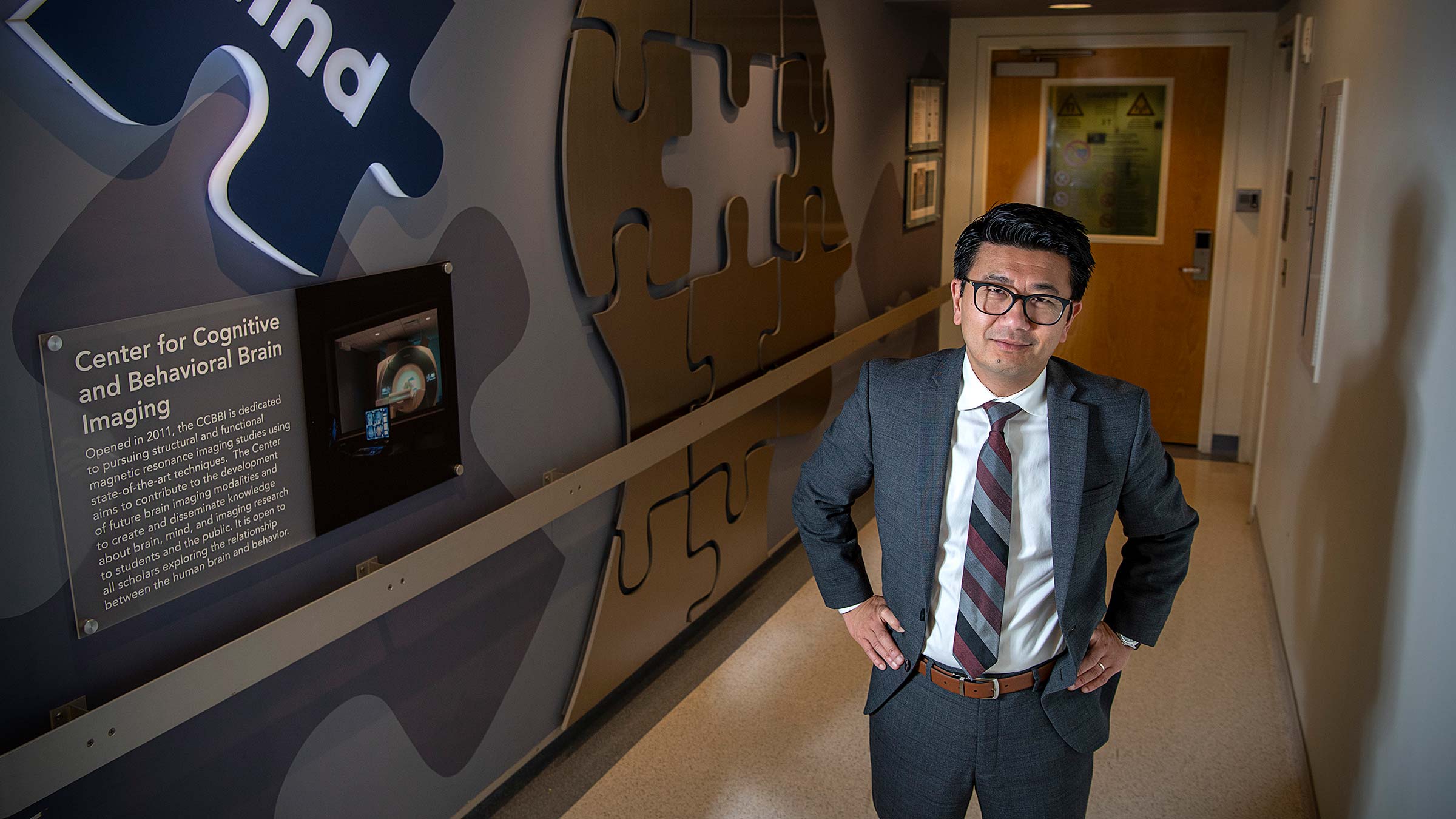Taking action to build mental health resilience
Ohioans are opening up about mental health and addiction struggles for a statewide initiative to improve prevention and treatment efforts.
They wanted to practice. A homecoming party was about a week away.
Pouring bottles of alcohol swiped from cupboards, the high school girlfriends had their first drink. The bitter blend repulsed some of her friends but not Sarah Anstine.
“I just felt like, ‘This is it. This is what I’ve been looking for.’”
What she had been looking for led Anstine from alcohol to marijuana to prescription pills to cocaine to heroin, then to rehab at 16 and then again within a year.
During her second stint in treatment, she sat in a circle with 20 other teenagers when a counselor warned: “Take a good hard look around this room. After graduation, only one in 10 of you is going to stay sober.”
Anstine found that hard to believe. Then she became that one, that one in 10. Holding tight to her sobriety, she ended two years of drugs and alcohol addiction.

For much of her adult life, Anstine has worked to bring others along with her to sobriety. Now, at 33, she’s a leader of an Ohio nonprofit funding drug prevention, treatment and recovery efforts in the state.
“Each one of us who overcomes addiction is a catalyst for change, reaching out and pulling 10 more people from the depths of addiction with us,” she says. “These 10, in turn, extend their hands to another 10.”
Anstine shared her story recently during the annual Faces of Resilience fundraiser for the Department of Psychiatry and Behavioral Health at The Ohio State University College of Medicine. The event also featured Ohio State head football coach Ryan Day and his wife, Christina, both honored for their $1 million contribution to mental health and resilience research and services at Ohio State.
“Within the team, we talk about how building balance in your life is building high ground for hard times through faith, family and friends,” says Day, who lost his father to suicide when he was 9 years old.

What leads people to crises and hope
Every day in Ohio, on average, 28 people die from suicide, an overdose of drugs or alcohol-related accidents.
A statewide study begun in January aims to reduce that grim figure. The State of Ohio Adversity and Resilience (SOAR) Study, will uncover what risk factors cause mental illness and addiction as well as what helps people recover from stress and trauma, and even thrive. The ultimate goal is to better prevent and treat mental health and addiction earlier.
“We spend a lot of time on crises in the clinics and in the hospitals, but we do not spend enough time in prevention, in catching people early on before their illness gets worse. As a result, they continue to struggle and suffer.” K. Luan Phan, MD, chief of psychiatry services for The Ohio State University Wexner Medical Center and leader of SOAR.

Ohioans candid about mental health struggles
Since the SOAR Study began six months ago, nearly 8,000 surveys have been completed from every county in the state. In total, 15,000 surveys will be collected. Ohio residents are being asked about their life challenges, how they cope, how their family members have coped, their physical and mental health, their neighborhood, social support, employment and housing.
Ten days after the first surveys went out, 3,000 people completed them.
“It’s been incredibly well received by mental health providers, by families, by folks who are willing to share some of the most personal things,” says Grace Wentzel, CCRP, CHRC, deputy director of operations for the SOAR Study.
‘I’ve been struggling with depression my entire life and I’m 70 years old.’
‘I’ve been homeless.’
‘I lost a loved one.’
“People want to be involved, and they know this is an opportunity for their voices to be heard,” Wentzel says.
Three other hospitals in the state and seven universities are joining Ohio State in attracting participants.
Over 200 people have already taken part in another aspect of the SOAR Study that examines brain health.
Up to 3,600 Ohio residents from 1,200 different families will be interviewed and offered a chance to have an MRI and take tests for concentration, attention and memory, along with other screenings.
A lot of factors may affect whether a person develops a mental illness or addiction. SOAR is the first study to examine all the factors at once — biological, psychological and social — and not just within individuals but within families as well.

“What we learn here can be pivotal to saving lives across the country and across the world,” Dr. Phan says. “This is the biggest opportunity we’ve ever had to help those suffering from mental illness.”
Treating mental health problems early
What’s unusual about Anstine’s personal story of getting past her addiction is that it was brief. It took only two years before sobriety stuck. She attributes that to all the support she had when she got out of rehab from friends, family members, counselors, recovery groups and a network of young adults in recovery. She attended a college with a program for students in recovery.
“This positive, youth recovery community didn’t happen by magic,” she says about what was available to her in the Houston area where she grew up.
“It happened because people in recovery built programs to help other people in recovery.”
So, she set out to continue that. Soon after Anstine moved to Ohio in 2013, she started Ohio State’s Collegiate Recovery Community, including a dormitory with 28 beds for students in sobriety. She managed the program for four years, leading, supporting and connecting with students and telling her story.

Anstine now leads outreach and partnership for OneOhio Recovery Foundation. She’s especially interested in helping people in the early stages of addiction, often in adolescence.
“Talk to anyone in recovery and ask them when they started drinking and using drugs and they’ll probably say 13 or 14,” Anstine says. “That’s the best time to intervene, to gives our brains more time to heal.”
Teaching mental health resilience
Discovering the ways people bounce back from difficult times is just as important as finding out what causes people to succumb to those difficulties. That’s why the SOAR Study is doing both.
Being able to rebound and grow from difficult life experiences is not a trait that some people have and others don’t, Dr. Phan points out. It’s not something that only the lucky are born with.
“Resilience is something that you can be taught, something you can practice, spread around, cultivate and spread throughout your community, your families, your neighborhoods, your schools and your workplaces,” he says.
Which is why Anstine is so driven to spread recovery. She knows that even just one person who overcomes an addiction can help countless others turn their missteps into something good. As she did. As she continues to do.

Support mental health resilience and healing
Give to support the Faces of Resilience.
Give today



